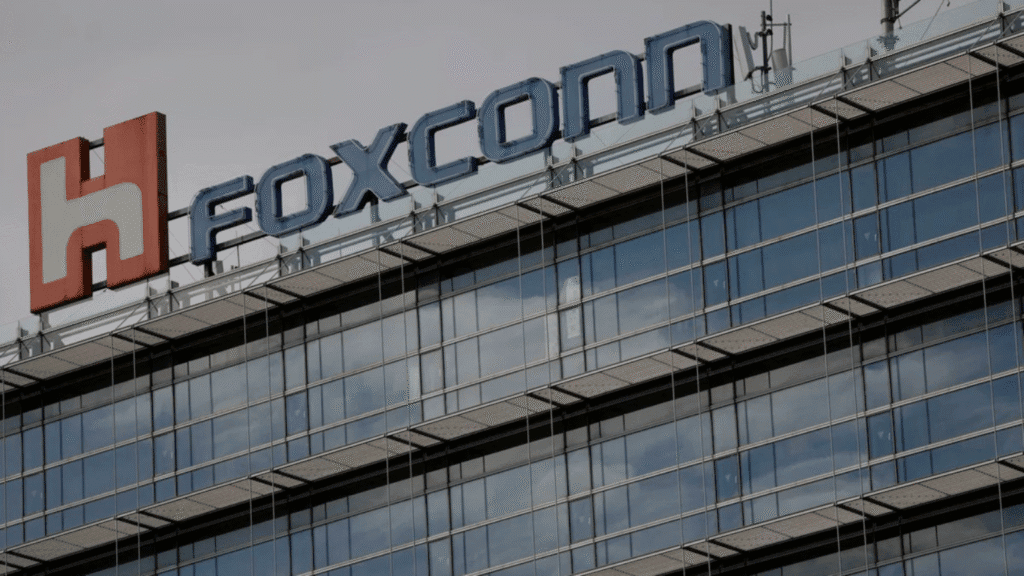In a move that has raised industry-wide concerns, Foxconn, Apple’s largest contract manufacturer, has recalled over 300 Chinese engineers from its iPhone manufacturing plants in South India. These experts were reportedly instrumental in training Indian technicians and ramping up assembly lines for Apple’s next-generation iPhones, including the upcoming iPhone 17.
Sudden Withdrawal, Long-Term Impact?
The decision, made discreetly over the last few weeks, may lead to delays in scaling up production at Foxconn’s key plants in Chennai, Sriperumbudur, and Bengaluru. While there’s no official word from Apple or Foxconn, insiders believe the engineers’ recall is strategic rather than temporary, driven by escalating geopolitical friction between China and India.
“The removal of Chinese specialists is a setback in the short term, particularly in quality control and system calibration,” a senior industry executive told India Today.
The Role of the Chinese Engineers
These engineers had been deployed to:
- Set up new iPhone 17 production lines
- Train Indian teams on precision assembly
- Calibrate and troubleshoot automation equipment
- Maintain quality standards for global exports
Their departure now shifts the technical load onto Indian engineers and Taiwanese coordinators, potentially causing production ramp-up delays ahead of Apple’s critical fall launch cycle.
🌍 Geopolitical Undercurrents
This move aligns with Beijing’s increasing restrictions on high-tech labor export and concerns over IP leakage to global rivals. It also reflects China’s quiet resistance to Apple’s “China+1” supply chain strategy, which seeks to diversify its manufacturing base across countries like India and Vietnam.
🏗️ India Still a Priority for Foxconn
Interestingly, this development comes despite Foxconn’s aggressive investment in India:
- In 2024, Foxconn invested $1.5 billion in expanding its Tamil Nadu manufacturing capabilities through its arm Yuzhan Technology India.
- In May 2025, it launched a ₹3,706 crore semiconductor JV with HCL to set up a chip packaging facility near Jewar, Uttar Pradesh.
This duality—scaling infrastructure while losing key personnel—underscores the fragility of global electronics supply chains and the complexity of decoupling from China.
What This Means for Apple
India is fast becoming a critical manufacturing hub for Apple, contributing over 14% of iPhone production in 2025. Foxconn, Pegatron, and Tata Electronics together handle large-scale production for global and Indian markets.
The engineer recall may:
- Delay production ramp-ups for iPhone 17 models
- Affect export timelines, especially to Europe and the US
- Force Apple to accelerate Indian workforce upskilling
- Trigger greater investment in local automation and training
India’s Challenge: Build Domestic Technical Expertise
This incident highlights a larger challenge for India’s electronics manufacturing ambitions under ‘Make in India’:
- Bridging the technical skill gap
- Developing local component ecosystems
- Ensuring supply-chain resilience without dependence on foreign talent
India’s next step will be to scale domestic capability through public-private partnerships, electronics training programs, and policy incentives.
Final Takeaway
The recall of over 300 Chinese engineers from Foxconn’s Indian facilities is a wake-up call for India’s ambitions to become the next global electronics hub. While it may temporarily slow Apple’s expansion, it also presents an opportunity: to double down on local capability, reduce talent reliance, and build a future-proof, sovereign supply chain.
As Apple diversifies and China tightens control, India stands at a crossroads—can it scale, skill, and lead in high-end tech manufacturing?



